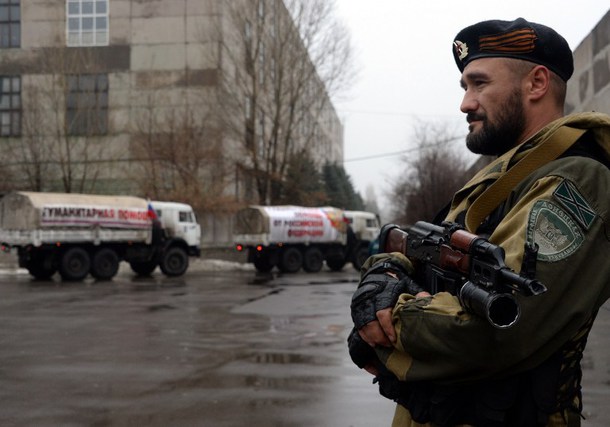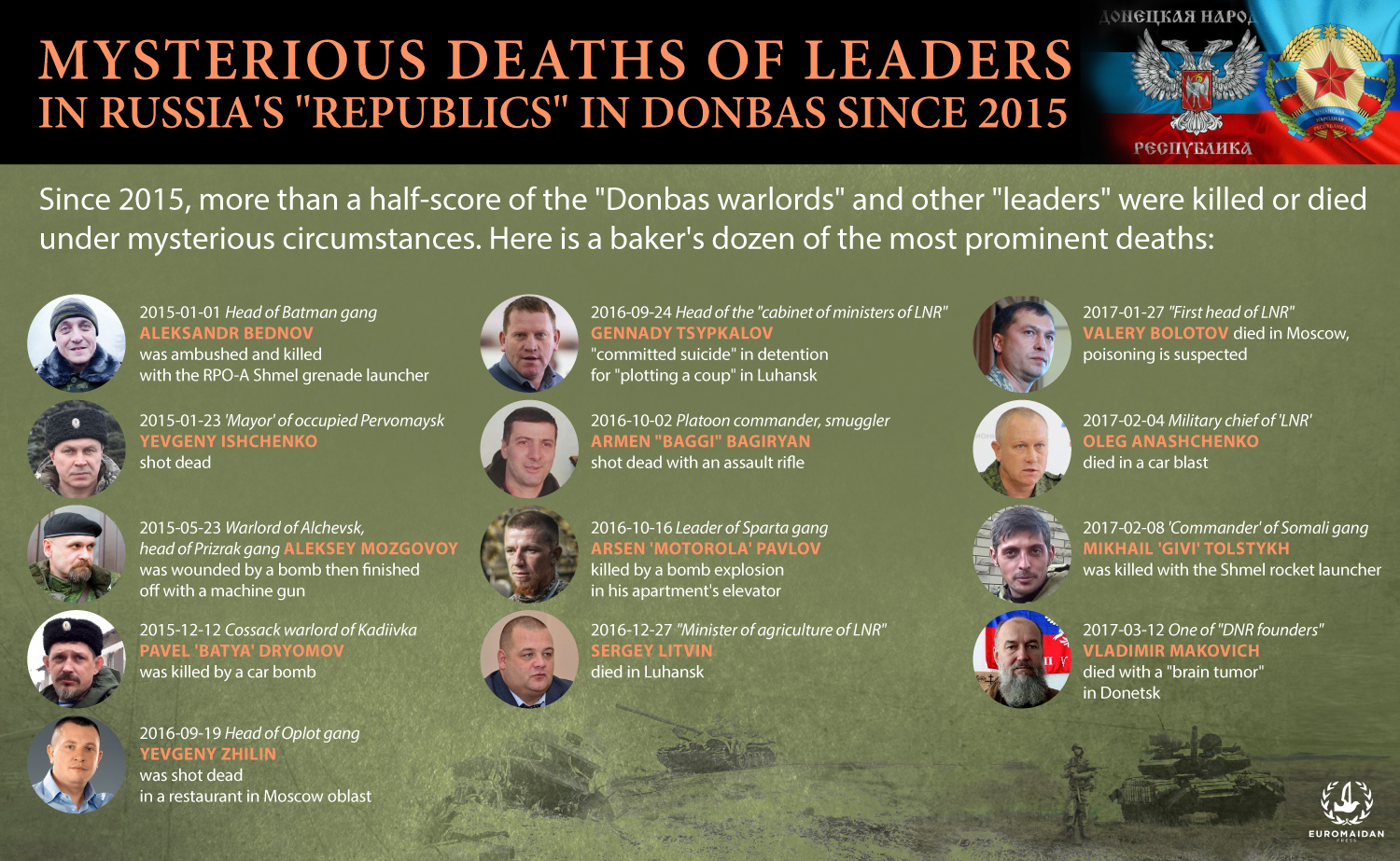Sounds of gunfire and exploding shells never cease on the outskirts of occupied Donetsk as locals continue cursing anyone carrying weapons, symbols of war and destruction.
Their anger is directed against both Russian-backed militants and Ukrainian soldiers. The civilian population is tired. People are exhausted by two years of war, poverty and empty hopes for a ceasefire. Few believe that the Minsk Agreement will help resolve the conflict, and in fact until recently they thought this dirty useless war was finally coming to an end. A month ago, the phrase “another truce” was greeted with laughter, but today no one pays attention to it. It is hard to say what the peaceful citizens of Donetsk are more tired of - war or empty promises.
It is nice to see such a peaceful mood among locals. But, the fact that locals have not as yet defined their position in relation to the two sides involved in the war may render the situation insoluble. Peaceful civilians now remain in occupied Donetsk, Makiyivka, Yenakiyevo, Khartsyzk and other cities. By refusing to make a stand… a choice, these people have become hostages of the ongoing conflict.
Do they understand this or not? Probably not, as they continue to hope that peace will come to the city and that everything will be decided without their participation. Unfortunately, this is not the fault of one generation, it is not the fault of Donbas and Donetsk alone… it is a long-term virus that has taken root in the subconscious of many Donbas residents. Problems were always resolved by the highest authorities… that’s the way it was under the Soviet Union and for many years after its disintegration.
Despite the fact that people have been given a choice, no one believes that his voice will make a difference. However, as things stand, sooner or later everyone will have to make a choice and decide who they want to live with - the “junta” or the “protectors”.
Most people in Donetsk curse anyone carrying a weapon, but they are not ready to rise up against anyone. Some will come up to armed “protectors” and tell them face to face that they are not defending anyone or anything and are just prolonging the war. But, there is no guarantee that tomorrow those same “protectors” will not seek them out and throw them in the cellar.
As a rule, people avoid talking about the war in public, but listening to some conversations between friends, you realize that it is not so bad. Yes, people do not like the Ukrainian army, but believe me, they frankly hate the “DNR”. Normal citizens do not think that it is normal to see heavily armed terrorists walking around the city, and what’s more completely drunk…
Locals maintain that there were fewer armed “DNR guys” in the city at the beginning of October. However, once the brief truce evaporated, they have started strolling around in pairs or threes.
So that our readers can get the whole picture, we should tell you that not all the so-called “militants” ride around in armoured vehicles, or classy military and passenger cars. Locals who joined the “DNR” use public transport. However, there are not many of them and some “locals” ask how to get to Lenin Square, the centre of the city, which all residents should know. Questions like “How do I get to Vatutina Street or Shakhtostroyiteliv Street” are heard quite often… Locals say that “protectors” can be found on the streets and cafes, but with each passing month there seem to be fewer and fewer. Either they are enjoying a well-earned holiday after “a hard day’s work” or they have left for Syria, where the real money is. You may also meet a “volunteer DNR guy” at the supermarket, regularly supplied by humanitarian convoys from Russia.
The lucky people who still work or have been able to find a job that is not related to military affairs receive a very small salary at the rate of 1 to 2, despite the fact that $1 US equals 2.6 rubles.
Salaries in the “DNR” can be measured by the ads on the site of the so-called “DNR Employment Centre”.
An anesthesiologist gets a salary of 4842 rubles (2421 UAH at “DNR” exchange rate, and only 1670 UAH at the Ukrainian exchange rate). Yes, there are salaries amounting to 7000 and 8000, and even 10,000 rubles, but this is rare, and if you compare prices to salaries, it comes out to pennies.
Products in the occupied cities cost more than those in the liberated areas. 2.5% milk in not too distant Kostiantynivka (liberated area) costs about 11.5 UAH, while in occupied Donetsk from 37 rubles (18 UAH).
There is no gas in Donetsk...that is, there is enough, but it cannot be found. Almost all the gasoline stations are empty because there is nothing to fill the cars with. Few people use gasoline, and there has not been any gas for weeks. Therefore, as soon as gas appears, all the drivers queue in kilometer-long lines.
It is the same with heating. There is not enough gas pressure for boilers to function normally, so homes are heated in spurts - here today, gone tomorrow. The “DNR” authorities have promised to resolve this problem by December 10, but Donetsk locals take such promises with a grain of salt. “DNR” authorities already promised to repair and return property, but no one has received anything yet. In some remote areas, some windows have been replaced, but there has been no major construction or renovation of infrastructure. Almost everyone who submits documents with attached photos of their destroyed home (required by the district councils) are told: “You’re on the waiting list, but we can’t tell you when the work will begin.”
No one has bothered to restore the outskirts of the city, which suffered heavily during the fighting.
One day, the “head” of the city’s occupant administration, Oleksandr Martynov, arrived on the outskirts of the Kuibyshev district with a bunch of nails and a GAZelle utility vehicle filled with slates and demonstrated how construction work would be implemented in the area. Unfortunately, this large territory was heavily shelled and a box of nails and a truckload of slate will not suffice to reconstruct…
Donetsk residents are tired of empty hopes promises and hopes, ready to curse the armed “militants”, but not yet ready to rise up against them.





